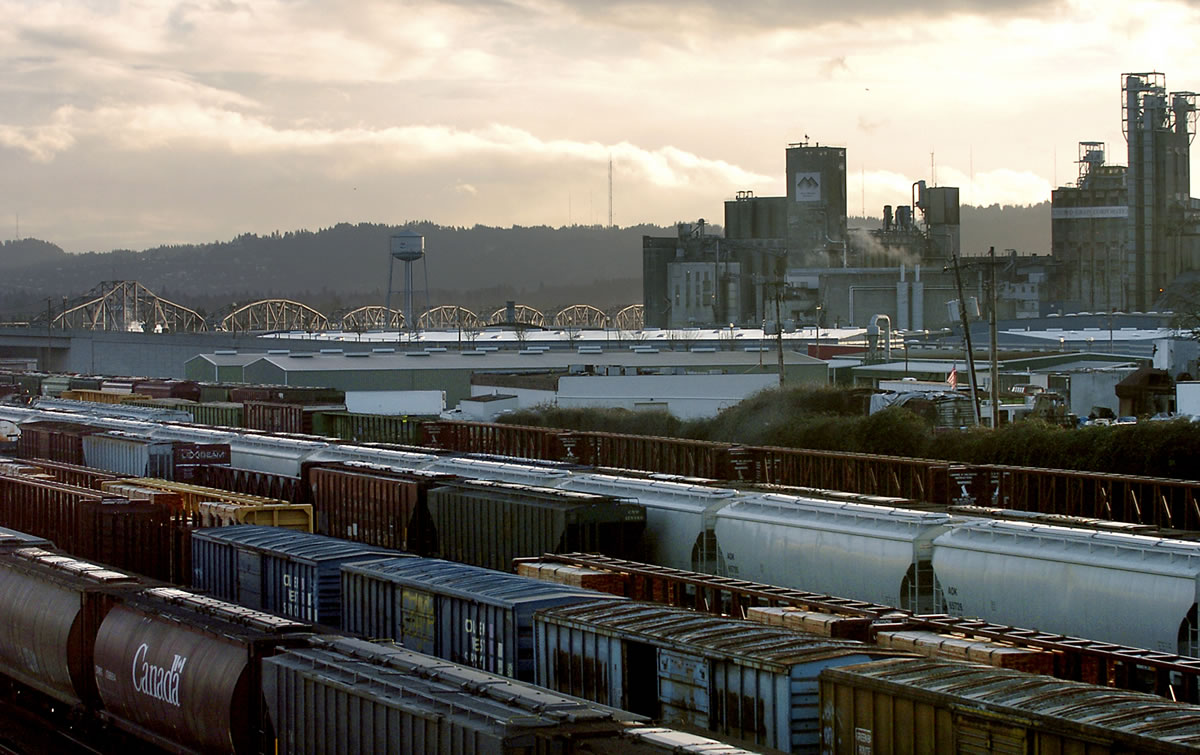Why aren’t our state’s elected officials doing more to promote and enhance the single-largest economic driver of our state’s economy?
A recent report from the Washington Council on International Trade and the Trade Development Alliance of Greater Seattle found that 40 percent of all jobs in Washington are tied to trade. But rather than focusing on initiatives to make our state more internationally competitive, state and local leaders are supporting a number of policies with the opposite impact.
The recently concluded regular legislative session featured proposals to tax trade and increase taxes on marine terminal operators who are competing with Canada and other states for cargo; as the state Legislature continues in special session, there are still specific proposals to tax imports and exports, providing shippers and manufacturers incentive to use ports outside of the state. This is bad news for Southwest Washington, where the ports of Vancouver, Longview and Kalama depend on discretionary cargo that could easily be shipped from other states or Canada if Washington removes incentives for trade. The Port of Vancouver alone indirectly supports more than 15,000 jobs, and many businesses in the region have chosen to locate in Southwest Washington due to the ability to easily export or import goods.
Other states also choose to export their products through Washington ports because of our strategic position as a gateway to the international marketplace. The movement of goods and commodities in itself has become an industry for our state.
To continue that trend, we need to make the investments and policy decisions that will maintain our state’s status as a desirable path to Asia for products of all kinds. Our status as a global gateway economy is particularly important for Southwest Washington, with over half of the region’s $3.3 billion of goods exported to Asia Pacific countries. While other U.S. states and Canada already recognize that strengthening trade infrastructure is the key to attracting lucrative new industries, Washington is falling behind.
Port of Vancouver investment
Tax policies are just one way that our elected officials can impact our state’s global competitiveness. Another area is investment in new freight capacity, where new capital is desperately needed to maintain our advantages. For example, the state’s freight rail plan has identified $2 billion in project needs for Washington railroads. BNSF invests over $100 million per year in their infrastructure in Washington state, and as trade grows, so will that investment, leading to better freight and passenger rail service.
The Port of Vancouver’s major investment in rail in partnership with BNSF is already paying off; as a result of the Port’s rail infrastructure, Tesoro and Savage are planning to build a 120,000 to 280,000 barrel-a-day crude oil loading facility, which will bring jobs to our state. Washington’s policymakers should remember this lesson when considering the investments our roads, bridges and rail desperately need.
Finally, our state’s leaders need to maintain a regulatory system that is fair and predictable and promotes investment in trade and freight mobility. Regulations are meant to protect our communities, while aiding business development — good regulatory systems simultaneously do both. Our current review process has worked for decades, so there is no need to change it and endure the consequences of regulatory overreach we have experienced in the past, which resulted in losses to our agricultural industry and a devastating decline in timber production. We can’t and shouldn’t let that happen again.
Fostering new public and private investment in growing and modernizing our ports and freight mobility system will benefit shippers and the industries that rely on them, growing our trade capacity and creating jobs in Southwest Washington. Canada’s Gateways strategy is already yielding gains in cargo at the expense of our ports.
Our state has fared better than most during the economic downturn, thanks to our connection to the world’s fastest-growing economies in Asia. But we can’t take that success for granted. We must continue to invest and grow our strongest industry.
Eric Schinfeld of Seattle is president of the Washington Council on International Trade (http://wcit.org).



